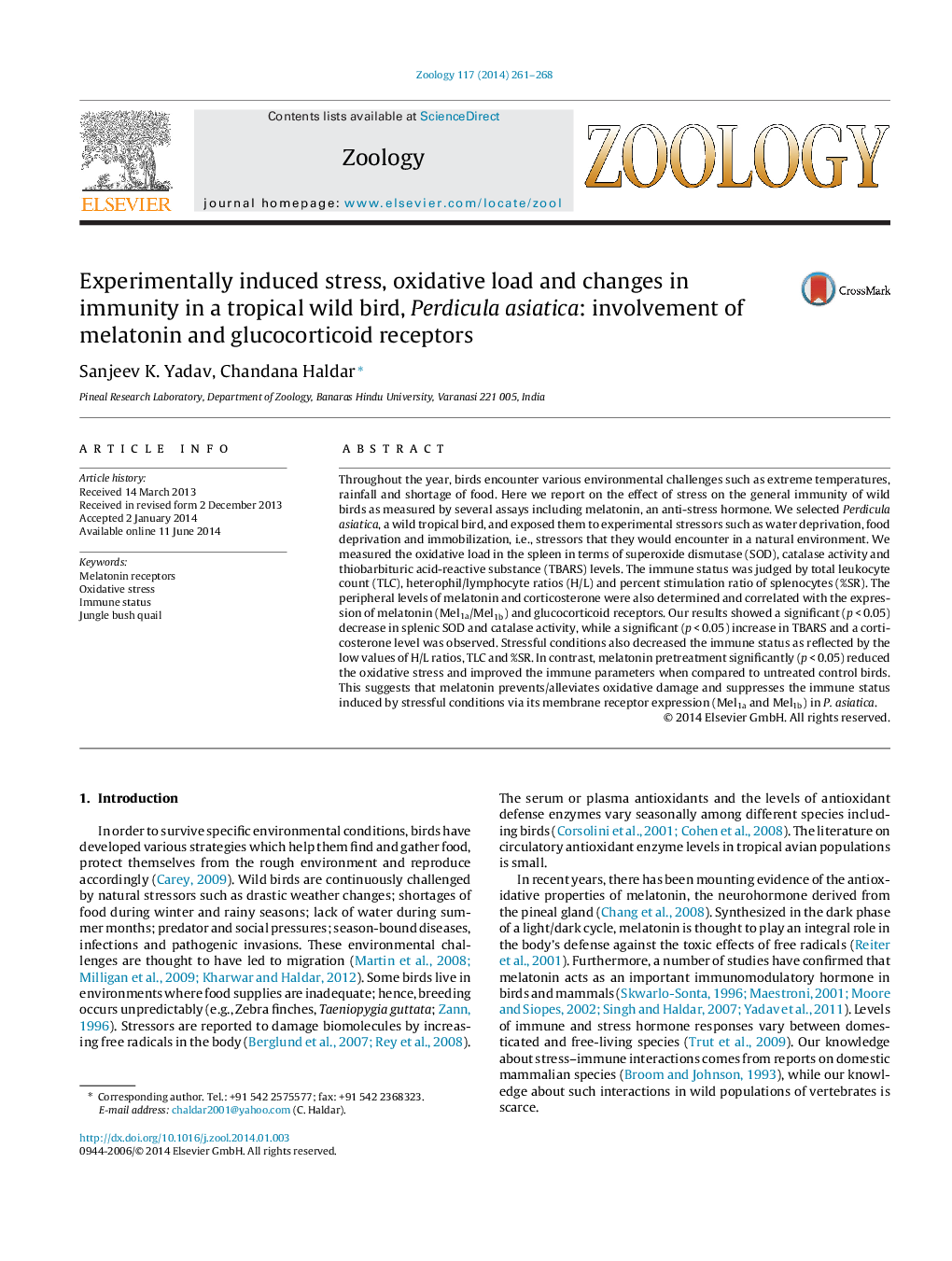| Article ID | Journal | Published Year | Pages | File Type |
|---|---|---|---|---|
| 5896394 | Zoology | 2014 | 8 Pages |
Abstract
Throughout the year, birds encounter various environmental challenges such as extreme temperatures, rainfall and shortage of food. Here we report on the effect of stress on the general immunity of wild birds as measured by several assays including melatonin, an anti-stress hormone. We selected Perdicula asiatica, a wild tropical bird, and exposed them to experimental stressors such as water deprivation, food deprivation and immobilization, i.e., stressors that they would encounter in a natural environment. We measured the oxidative load in the spleen in terms of superoxide dismutase (SOD), catalase activity and thiobarbituric acid-reactive substance (TBARS) levels. The immune status was judged by total leukocyte count (TLC), heterophil/lymphocyte ratios (H/L) and percent stimulation ratio of splenocytes (%SR). The peripheral levels of melatonin and corticosterone were also determined and correlated with the expression of melatonin (Mel1a/Mel1b) and glucocorticoid receptors. Our results showed a significant (p < 0.05) decrease in splenic SOD and catalase activity, while a significant (p < 0.05) increase in TBARS and a corticosterone level was observed. Stressful conditions also decreased the immune status as reflected by the low values of H/L ratios, TLC and %SR. In contrast, melatonin pretreatment significantly (p < 0.05) reduced the oxidative stress and improved the immune parameters when compared to untreated control birds. This suggests that melatonin prevents/alleviates oxidative damage and suppresses the immune status induced by stressful conditions via its membrane receptor expression (Mel1a and Mel1b) in P. asiatica.
Related Topics
Life Sciences
Agricultural and Biological Sciences
Animal Science and Zoology
Authors
Sanjeev K. Yadav, Chandana Haldar,
